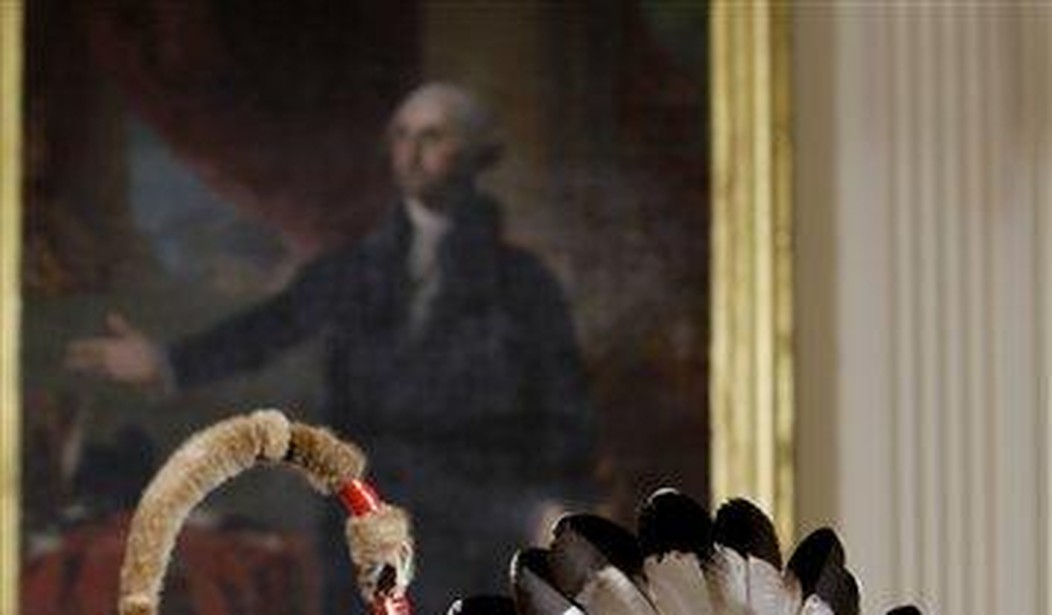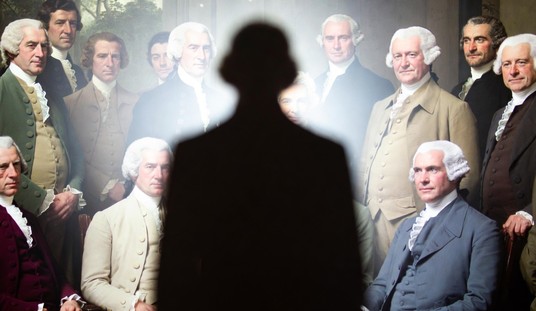“My mom was Indian and my dad’s a cowboy,” says Heather Rae, who has parlayed her Cherokee heritage into becoming what the New York Post called “Hollywood’s top Native American producer.” She is a member of the Indigenous Alliance of the Academy of Motion Pictures and has previously led the Sundance Institute’s Native American program. There’s just one catch: Heather Rae isn’t really Native American at all. Instead, she is just one more example of the recurring phenomenon today of white people attempting to escape the stigma of whiteness by posing as a “person of color.”
The Post reported Sunday that “a watchdog group called the Tribal Alliance Against Frauds is now demanding the Academy and the producer drop her ‘false claims’ while activists insist she’s at best 1/2048th Cherokee.” 1/2048! That’s even less than Elizabeth Warren, who is famously 1/1024 Native American. The Tribal Alliance Against Frauds accordingly accuses Rae of appropriating “real American Indian voices and perspectives” and even goes so far as to call her a “Pretendian.”
The game of pretend has gone on for a long time. Rae’s oldest daughter, who was born in 2002 and currently stars in the reboot of Dexter, is actually named Johnny Sequoyah. (Sequoyah, kids, was a real Native American who in the 1820s developed a system for writing in the Cherokee language.) But if Heather Rae is at best 1/2048 Cherokee, Johnny Sequoyah, despite her Cherokee name, is even less native; her father is another Hollywood producer, Russell Friedenberg, who doesn’t seem even to be pretending to be Cherokee.
Rae’s pretend game also involved her with another notorious “Pretendian,” Sacheen Littlefeather, the famous Apache whom Marlon Brando sent to the Academy Awards ceremony in 1973 to pick up his Oscar and berate Americans for mistreating American Indians. The Hollywood Reporter noted in Sept. 2022 that “the Academy welcomed Sacheen Littlefeather to its museum for an evening curated in her honor, an event that was both a culmination and continuation of its efforts to apologize to and reconcile with the actress and activist who was blacklisted from the industry for speaking up in protest of the treatment of Native Americans on- and offscreen.” Heather Rae was among those credited as the letter of apology to Littlefeather was read out.
Here again, there was just one catch: Littlefeather turned out not to be Apache at all. Her real name was Marie Louise Cruz, and she wasn’t even a fraction Native American. Far from being blacklisted, she had actually taken on her Native American identity in order to get work in Hollywood. Her sister Rosalind explained, “Marie’s sham claim of Native American heritage was nothing more than an opportunistic way for an aspiring actress to bust into Hollywood.”
Related: Hair-Raising Twist as Arizona Gov Signs Bill Prohibiting ‘Hair Discrimination’
Has Heather Rae been engaging in the same opportunism? It seems likely. There is nothing worse to be in America today than a white man, and white women aren’t far behind. The “white privilege” that arouses so much horror and disgust in wokesters doesn’t actually exist; if anything, there is “persons of color privilege,” and this is a secret only to the terminally blinkered and indoctrinated. Heather Rae, like Elizabeth Warren, Shaun King, Hilaria Baldwin, Linda Sarsour, Rachel Dolezal, and so many others who are less prominent (such as the white Jewish professor Jessica Krug, who passed as black for years, and Miguel De La Torre, a white professor of social ethics and Latinx studies at the Iliff School of Theology in Denver, Colo., who preaches that white people must “crucify their whiteness”) have learned that the path to social distinction, as well as to fame and fortune, goes through being a “person of color.”
Would Heather Rae have achieved the same success as a white woman that she has enjoyed as a fake Cherokee? Possibly. But there is no doubt that in Hollywood, the desire to find “people of color” to praise and put into the spotlight is even more intense than it is in American society in general today. Heather Rae no doubt saw that and decided to do what was necessary in order to draw attention to her work. In doing so, she offers the flip side of the experience of the black Americans in the early twentieth century who tried to pass as white in order to get better jobs or gain other advantages. For all the contempt that the woke have for American history, they are busy recreating its inequalities today, just in the opposite direction.










Join the conversation as a VIP Member